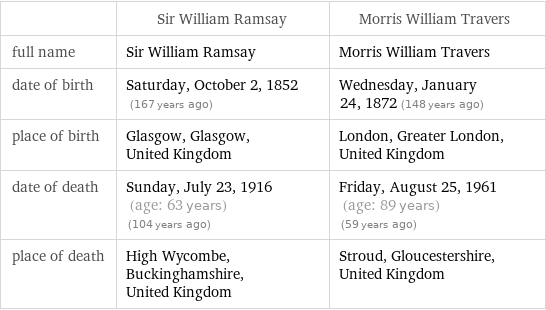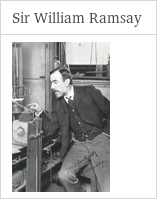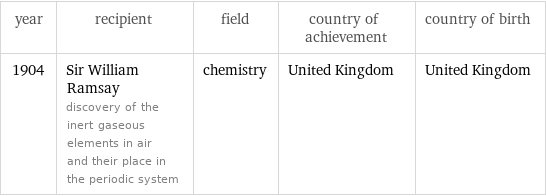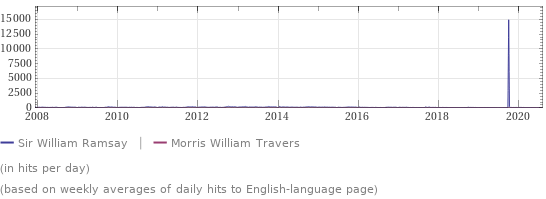Input interpretation

krypton | discoverers
Result

Sir William Ramsay | Morris William Travers
Basic information

| Sir William Ramsay | Morris William Travers full name | Sir William Ramsay | Morris William Travers date of birth | Saturday, October 2, 1852 (167 years ago) | Wednesday, January 24, 1872 (148 years ago) place of birth | Glasgow, Glasgow, United Kingdom | London, Greater London, United Kingdom date of death | Sunday, July 23, 1916 (age: 63 years) (104 years ago) | Friday, August 25, 1961 (age: 89 years) (59 years ago) place of death | High Wycombe, Buckinghamshire, United Kingdom | Stroud, Gloucestershire, United Kingdom
Image

Image
Timeline

Timeline
Nobel prize

year | recipient | field | country of achievement | country of birth 1904 | Sir William Ramsay discovery of the inert gaseous elements in air and their place in the periodic system | chemistry | United Kingdom | United Kingdom
Wikipedia summary
Sir William Ramsay

Sir William Ramsay (2 October 1852 - 23 July 1916) was a Scottish chemist who discovered the noble gases and received the Nobel Prize in Chemistry in 1904 "in recognition of his services in the discovery of the inert gaseous elements in air" along with his collaborator, John William Strutt, 3rd Baron Rayleigh, who received the Nobel Prize in Physics that same year for their discovery of argon. After the two men identified argon, Ramsay investigated other atmospheric gases. His work in isolating argon, helium, neon, krypton and xenon led to the development of a new section of the periodic table.
Morris William Travers

Morris William Travers, FRS (24 January 1872 - 25 August 1961) was an English chemist who worked with Sir William Ramsay in the discovery of xenon, neon and krypton. His work on several of the rare gases earned him the name Rare gas Travers in scientific circles. He was the founding director of the Indian Institute of Science.
Wikipedia page hits history

Wikipedia page hits history